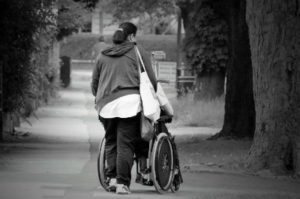There were more than 20,000 new nursing licenses issued in New York in 2015. This includes nurse's aides, LPNs, and RNs. With such a large pool of nursing professionals, there is no room for
The problem in New York isn't an employee problem; it is a result of bad management. In most states, nurses are held to standards that meet stringent requirements of independent nursing boards or the state health department. However, in New York, the Office of the Professions, which is the oversight agency responsible for the nursing profession, is led by the Board of Regents, a child agency of the Department of Education for the state. Besides being responsible for all nurses in the state, they also oversee the state's public education system.
For more articles on nursing homes, visit: Malnutrition And Dehydration In Nursing Home Residents
In other states, the process of screening nursing applicants is strictly regulated. New applicants must go through a background check before being hired. Unfortunately, New York bypasses most regulations, requiring little more than the applicant's word that she is qualified for the job and hasn't been in any trouble. In fact, nursing home applicants in New York don't even have to submit fingerprints or submit to a background check.
One of the biggest problems with New York policies is the self-reporting requirements. In New York State, licensed nurses only have to report criminal or legal convictions to the Office of the Professions every three years, when they are preparing to renew their license. Many nurses fail to report such changes, and nothing stops them from continuing to interact with vulnerable patients.
In any position where medical professionals must interact with patients on a regular basis, particularly when those patients are unable to physically care for themselves, their very lives can depend on the moral compass of the nurse in charge of their care. Without a background check, anyone can call themselves a nurse and become employed in a position of power. Not only does chaos in the form of ineptitude and negligence ensue, patients are exposed to the potential for:
In order to avoid the potential problems, nursing homes can experience after hiring an unethical nurse, New York state legislation can change the rules that currently govern the nursing profession and encourage more stringent hiring laws and disciplinary procedures.
Punishing nurses who commit a crime or conduct themselves inappropriately is one way to reduce the dangers involved with living in a nursing home. In 2014, New York disciplined approximately 1 in 1,190 nurses for errors in judgment and negligent care. Compare this to Texas, who disciplined 1 in 167 nurses. Or California, who disciplined 1 in 325 nurses.
Another way to reduce the dangers of nursing home existence is shortening the time period between the acknowledgment of misconduct and the disciplinary action taken to correct the wrong. Because the units within New York's Office of Professions are separated, renewals and investigations are often filed by two different departments, which can lead to a lag extending more than a year from charges to punishment.
Finally, the Office of Professions could enact its emergency suspension privileges, a process designed to remove
dangerous caregivers from their position immediately and save seniors from potential abuse. In ten years, New York's Office of the Professions used their emergency suspension power only twice.
Governor Andrew Cuomo has recently promised to investigate the hiring gaps in New York's Office of Professions and shift the oversight responsibilities to the state Health Department if necessary. Others in the position of power within the Department of Education say the same thing, promising to make background checks and fingerprinting a requirement for new hires if state legislators proposed such a measure.
New York Nursing Home Residents Are Suffering. Continue reading to learn more.